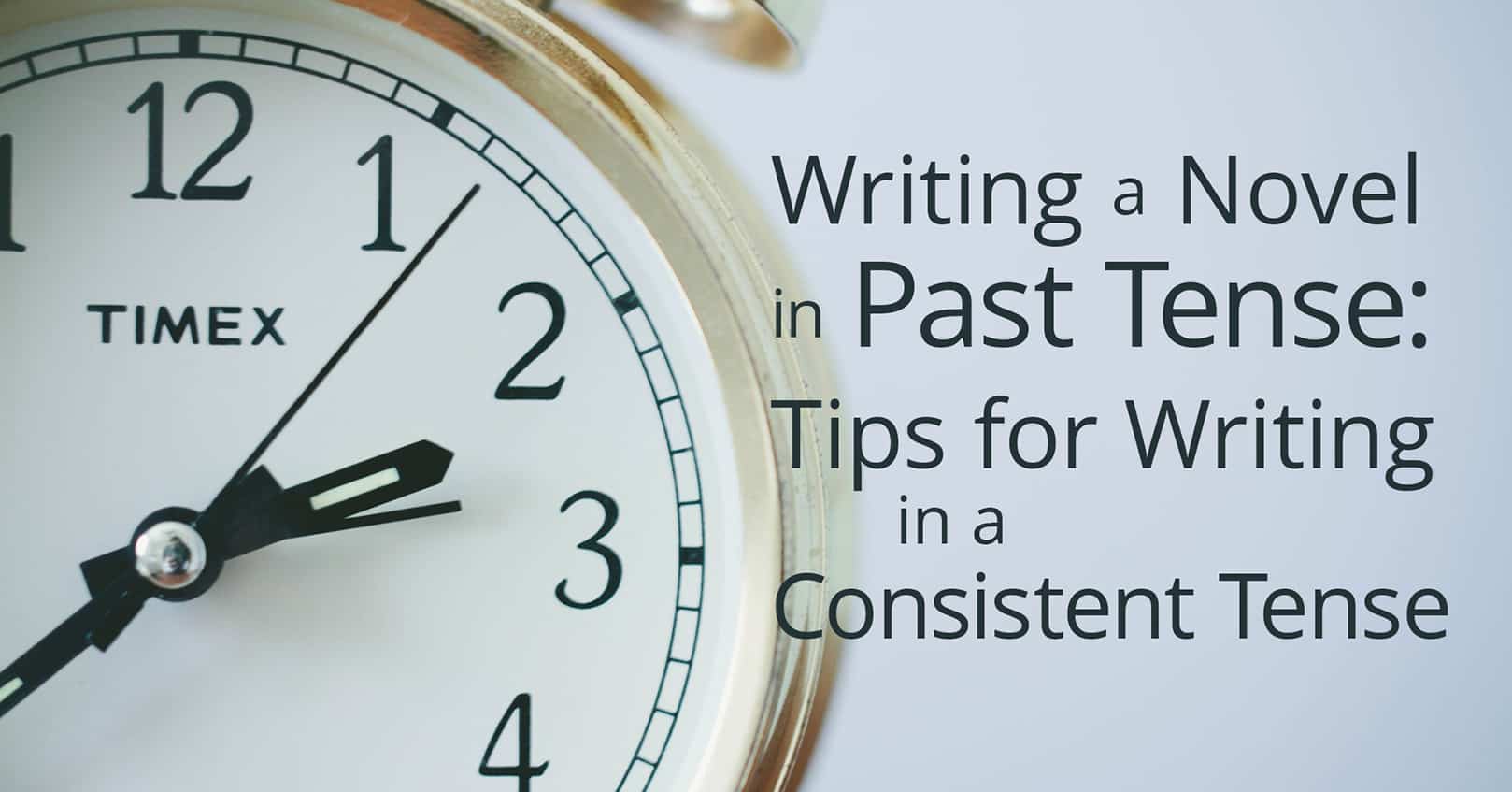
Novels are often written in past tense, but writing in a consistent tense can be tricky. Here are some tips for writing a novel in past tense.
Don’t Jump Tenses
If you’re writing your novel in past tense, stay in past tense. Changing the tense is not only jarring to the reader, but can make the timeline of the novel confusing.
There are some exceptions: dialogue (which would appear in quotation marks) and inner thoughts (which should appear italicized). The tenses for these can vary, depending on what the characters are talking about, but they’re always from the perspective of the speaker or thinker. If it helps, imagine you’re the character talking or thinking in that situation to get the correct tense for dialogue or inner thought—the tense should sound natural.
Double-Check around Dialogue and Inner Thoughts
Because dialogue and inner thoughts are often in present tense, it’s easy to accidentally slip into present tense directly after writing dialogue or inner thought.
Correct: His hair stuck up straight on his head. “You look ridiculous,” I choked out through my laughter.
Incorrect: His hair stuck up straight on his head. “You look ridiculous,” I choke out through my laughter.
Watch Out for These Verbs
Some verbs are easy to mix up when writing in past tense.
1. Would Versus Will
“Will” is present tense and should not be used when writing a novel in past tense. “Would” is the correct conjugation, even if the action will be happening in the character’s future.
Example: Tomorrow, she would run to the store to pick up ingredients.
2. Had Versus Have
“Have” is present perfect tense, and “had” is past perfect tense. Be sure to use “had,” not “have.” You use the perfect tense (rather than regular past tense) to show an action that started in the past and continues in the present.
Example: I had just started eating when the door burst open.
3. Lay Versus Lie
These two verbs are tricky beyond deciding which one to use because the past tense of “lie” is actually “lay.”
For your reference, the past tense of “lay” is “laid,” and the present participle is also “laid.” The past tense of “lie” is “lay,” and the present participle is “lain.”
You can read more about “lay” versus “lie” and how to use and conjugated these verbs in our blog post here.
Do you have questions about writing in a consistent tense? What trips you up when writing a novel in past tense? Let us know in the comments below!
If you’d like to learn more about Book Cave author promotions and other marketing ideas, please enter your email below and click the “Learn More” button to receive our author newsletter.










Dear Catia – I am currently writing a book on one of my dogs that passed away and the book includes life stories of my other five rescued dogs who are still alive. In my draft, I refer to my lost dog in past tense, but I describe the stories and personalities of the others in current tense. My editor has converted the entire work into past tense, making it seem to me when I read the edited version that all my dogs have passed. It just does not read correctly to me.
Rob
Robert,
If the rest of your book is past tense, then the stories and personalities of your other dogs who are still alive would also definitely be in past tense. I can see why your editor changed the other stories and personalities to past tense, because even though those dogs are still alive, the stories did happen in the past. But, that does make writing the personalities in the past seem strange, since their personalities are in the present! So I see your dilemma.
However, it is completely correct to have the entire book in past tense, and most books are written this way.
That being said, it would also be correct to write the book in present tense with a first person narrative that then refers to past stories in the past tense. In other words, you would write it as if you were talking to someone right there.
For example (Please excuse the narrative; I’m making up a story off the top of my head!):
Present: I have several great dogs. They have a mix of personalities.
Past tense (because the dog is gone): But the one with the strangest personality was the very first rescue dog I trained. She would always….
Present: Now, my other dogs never do that.
Past (because while these dogs are alive, this story happened in the past): But there was one time where the other dogs did something pretty funny…
Catia – yes, the book was originally written in first person. I do understand what you are saying and I am rewriting the edits to describe my living dogs in present tense but the stories of them in past. And I get your made up story!
Orig story of living dog: Zoe is a pleaser and likes to sit with Diane on the couch. She once ran down to the neighbor’s house.
The way it was edited: Zoe was a pleaser and liked to sit with Diane on the couch. She once ran down to the neighbor’s house.
I am reverting the book back to the orig method which I think makes sense and jibes with your comment
Thank you
Rob
Great! I do like your original better–I think it matches better with the conversational feeling your book has.
Thank you so much for taking the time to analyze my question and respond!
Rob